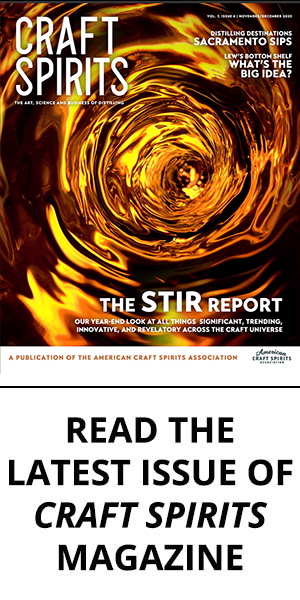Update: This post now includes additional guidance on best practices that TTB provided to the American Craft Spirits Association on Oct. 19, 2020.
In response to changes to Food and Drug Administration (FDA) regulations, the Alcohol and Tobacco Tax and Trade Bureau (TTB) is updating its policy on gluten content statements on labels and in advertisements for wines, distilled spirits, and malt beverages regulated under the Federal Alcohol Administration Act (FAA Act).
TTB issued the following guidance on Tuesday:
The main points of TTB Ruling 2020-2 are:
- We are continuing to authorize the term “gluten-free” if the product would be entitled to make a “gluten-free” labeling claim under the definition in FDA regulations.
- In light of changes to FDA’s regulations, we are revising our policy to allow the term “gluten-free” for distilled spirits distilled from gluten-containing grains as long as good manufacturing practices are followed that prevent the introduction of any gluten-containing material into the final product.
- We are continuing to allow labels and advertisements for products fermented from gluten-containing grains to bear a claim that the product was processed (or treated or crafted) to remove gluten, if the claim includes an appropriate qualifying statement and necessary documentation is available to substantiate the claim.
This ruling does not require any changes to approved labels. Instead, it allows greater flexibility for industry members who wish to make voluntary “gluten-free” claims on labels or in advertisements of distilled spirits distilled from gluten-containing grains, subject to the conditions of this ruling.
For additional details, see TTB Ruling 2020-2
On Oct. 19, the American Craft Spirits Association received the following additional guidance on best practices from a TTB representative:
For the purpose of making a “gluten-free” labeling or advertising claim in relation to a distilled spirits product, TTB has determined that distillation in accordance with good manufacturing practices includes avoiding the introduction of any gluten-containing material into the distillate during distillation and also avoiding cross-contact with gluten. See TTB Ruling 2020–2. Industry members are responsible for ensuring that any “gluten-free” claim is truthful and accurate and should be prepared to substantiate such claims upon request. In the case of distilled spirits, compliance can be verified through testing to confirm the absence of protein or protein fragments (and thus gluten) in the product. TTB may request samples for laboratory analysis, if necessary, to evaluate a label or advertising claim.
Separate from TTB’s requirements to make a “gluten-free” claim, distilleries, as food facilities, are required to comply with the FDA’s food safety regulations, including those described as Current Good Manufacturing Practices (CGMPs). See 21 CFR part 117. More information on CGMPs is available here: hwww.fda.gov/food/guidance-regulation-food-and-dietary-supplements/current-good-manufacturing-practices-cgmps-food-and-dietary-supplements. These requirements apply regardless of whether a food product, including a distilled spirits product, is intended to be labeled as “gluten-free.”


